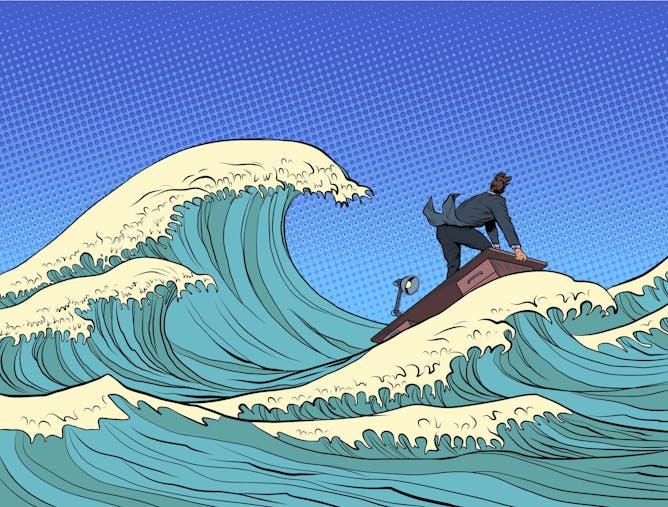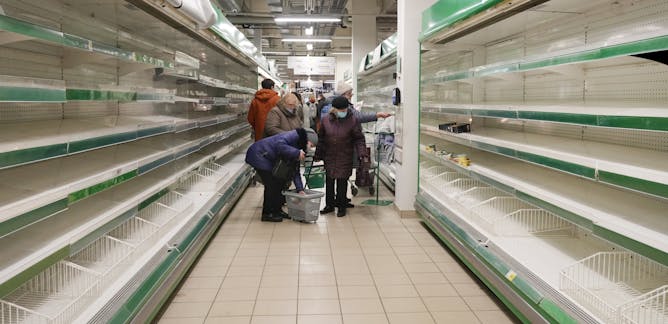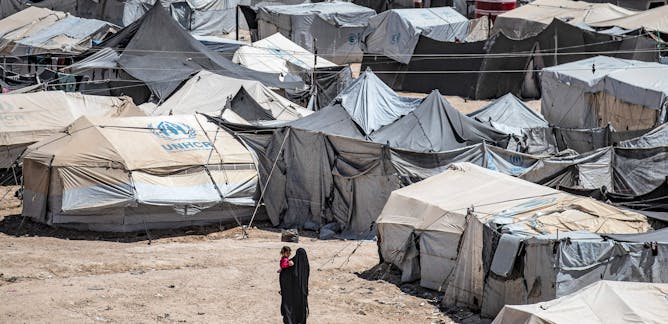|
|
|
|
I admire pretty much anyone who is brave and committed enough to run their own business. Whether it’s a restaurant, a tech startup or a hedge fund, the pressure can be intense, and the risks potentially overwhelming.
Timing helps, of course. A booming economy, efficient supply chains and confident consumers can make the rough times smoother and the chances of success just a little bit greater.
Unfortunately, none of those conditions prevail in April 2022. The economic environment could hardly be tougher after two years of COVID-19, and now a war is raging in Europe. Meanwhile, climate change looms over every political and lifestyle choice.
“The world appears to have entered into an age of accelerating grand crises,” writes Oliver Laasch, senior lecturer in entrepreneurship and innovation at the University of Manchester.
Luckily, he also has a solution to these global problems, with three ways that businesses can adjust what they do to withstand current challenges – and future ones too.
Living in interesting times doesn’t mean we should cease to be enterprising – it just means adapting.
|

|
Luke Salkeld
Commissioning Editor, The Conversation UK
|
|

studiostoks/Shutterstock
Oliver Laasch, University of Manchester
We are living in an age of accelerating crises. Businesses need to respond to current crises, be better prepared for future crises, and address their contribution to these crises in the first place.
|
Essential briefings
|

Investors are happy, pushing the share price up since the announcement. What about users?
| |

The president's business reforms are not to everyone's liking, but they seem to be producing results.
|

Despite the ruble's recovery, sanctions have punished Russia's economy. But changing Putin's mind is another matter.
| |

Russia's tactics in both countries have been similarly brutal. The humanitarian needs are vast.
|
|
|
Quote of the week 💬
|
-
“Our increasingly digital existence contributes to real-world social disconnection. To compensate, people look for whatever attention they can find on social media, including through complaining and arguing.”
– Angela Dobele, Professor of Marketing and Ashleigh Powell, Lecturer in Marketing, RMIT University, from her story, What our negative comments and consumer gripes on social media reveal about us
|
|
|
|
Workers
|
-
Kristen Schultz Lee, University at Buffalo; Hiroshi Ono, Hitotsubashi University
This important benefit does more than just help parents in terms of dollars and cents.
|
|
Economy
|
-
Margaret Chitiga-Mabugu, University of Pretoria; Helene Maisonnave, Université Le Havre Normandie; Martin Henseler, Université Le Havre Normandie; Ramos Emmanuel Mabugu, Sol Plaatje University
Investment in green technologies in sectors which cause significant environmental pollution can create a double dividend.
|
|
Consumer
|
-
John Dumay, Macquarie University; Cristiana Bernardi, Open University; Stephanie Perkiss, University of Wollongong
Are the eggs you're buying this Easter good for cocoa farmers, kids and the Earth – or actually doing harm? Our 2022 scorecard of the big brands can help you buy better than before.
|
|
Currencies
|
-
Simon Dermarkar, HEC Montréal; Mouna Hazgui, HEC Montréal
Cryptocurrency allows Ukraine to get quick financial support, and Russia, to bypass international sanctions and protect some of its economic interests.
|
|
More from The Conversation |
|---|
| |
|
| |
| |
| |
| |
|
|
|
|
|
|
|